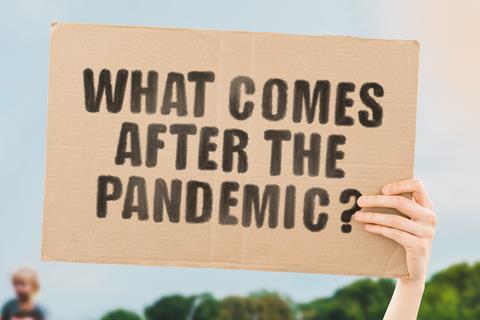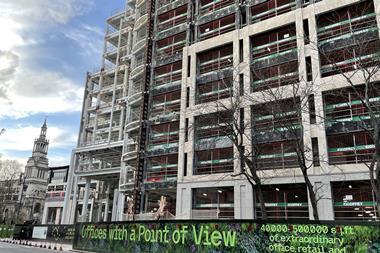New Year. New lockdown. Fanf***ingtastic.

Just when we all thought ‘peak bleak’ was behind us and we were about to exit the tunnel and step boldly into the light, we must instead reconcile ourselves to the unwelcome new reality that there is still a long way to go until the end of this journey and gird our loins for what will hopefully be the final stretch.
With the highly infectious Kent (or French, as I like to call it) mutation of the Covid virus running rampant, the coming weeks will be the toughest yet. To compound the misery, the weather is unrelentingly grim – the one saving grace of the first lockdown was the incongruous but welcome sunshine and balmy spring weather. I think I can safely say this won’t be a dry January in more ways than one for some.
But though further away and fainter than it appeared to be a short while ago, there is still light at the end of the tunnel. Don’t take my word for it. Take the word of our brilliant cast of crystal ball gazers who bravely accepted a challenge many others would balk at: to forecast what lies ahead for the industry this year.
The consensus is… actually, there is no consensus. How could there be? We don’t know what will happen tomorrow, let alone over the next 12 months. But if there is a recurring theme, it is that as far as the industry is concerned, the greater the challenge, the greater the opportunity.
Some might wince at the seeming callousness of such a statement. It is true that there are few industries that relish the prospect of the rich pickings created by a recession quite as much as the real estate industry. However, this time it is not so much about capitalising on others’ misfortunes or naked opportunism as having the will and the way to do what is necessary to ensure the survival of businesses, or even sectors, that would otherwise fall by the wayside.

Cain International’s Jonathan Goldstein sums it up perfectly. “In times of disruption, there are both challenges and opportunities, perhaps none more so than in hospitality,” he says. “The opportunities to build a business in that sector will be once-in-a-generation. It will be a venture for the brave, but the rewards will be worth the risk.”
My hope is that we will see more collaboration in this third lockdown and that local retailers that, in the words of Ballymore’s John Mulryan, have “emerged as some of the heroes of the pandemic” find willing partners and allies in their landlords rather than the adversaries their larger counterparts have turned their landlords into. I would also like to see those larger retailers stop CVA-seeking and do more to help themselves by reinventing themselves as “leaner, omni-channel animals”, as Eversheds Sutherland’s Bruce Dear suggests.
Like Mishcon de Reya’s Susan Freeman, many of us would love the pandemic to be followed, as the Spanish Flu was 100 years ago, by another Roaring Twenties (minus the subsequent Great Depression), but it is more of a hope than an expectation.
Things will get better, though. While everything looks bleak right now, as the saying goes, it is always darkest just before the dawn.





























No comments yet